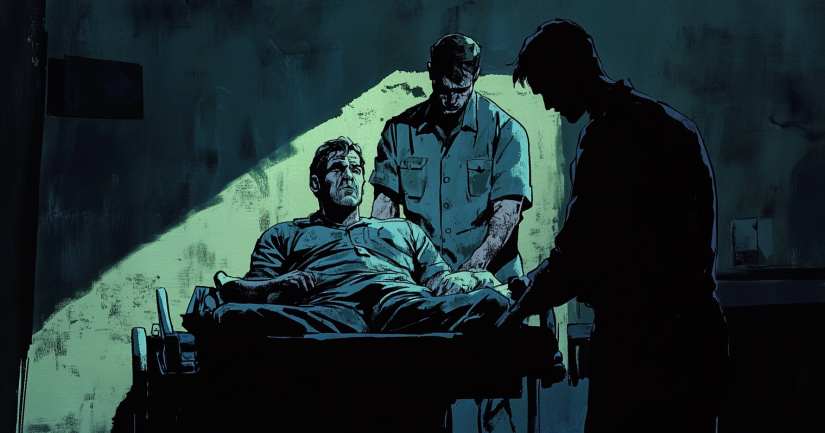
Revisit the key moments of Chapter 20 in Tim O’Brien’s The Things They Carried Quiz and uncover its enduring significance. This chapter takes you deep into the complexities of war and memory, and our quiz will guide you through its rich tapestry. You’ll explore the burdens each character bears, both tangible and intangible. As you answer each question, you’ll gain a deeper understanding of Tim O’Brien’s powerful storytelling.
In Chapter 20, the lines between truth and fiction blur. The quiz will challenge you to think critically about what is real and what is imagined. You will delve into the emotional weight of the characters’ journeys and discover how these experiences shape their identities.
You’re almost there! Move forward with The Things They Carried Chapter 21 Quiz, reflect on The Things They Carried Chapter 19 Quiz, or test yourself with The Things They Carried Full Book Quiz.
This quiz isn’t just about recalling facts. It’s an opportunity to engage with the text on a personal level. By the end, you’ll have a greater appreciation for the art of storytelling and the profound themes of courage, guilt, and redemption. So, grab your book and get ready to uncover the layers of The Things They Carried. The Things They Carried Quizzes: Explore Tim O’Brien’s Vietnam War stories …
What Happened – The Things They Carried Chapter 20 Quiz
In Chapter 20 of The Things They Carried, the soldiers are in Vietnam. They are dealing with the challenges of war. The chapter describes the items each soldier carries. These items are both physical and emotional burdens. The soldiers carry weapons and gear. They also carry personal items like letters and photographs.
The chapter focuses on a soldier named Norman Bowker. He is struggling with memories from the war. He thinks about a friend named Kiowa who died. Bowker feels guilty about not being able to save Kiowa. He drives around a lake in his hometown, recalling these events. He remembers how the soldiers searched for Kiowa’s body in the mud. Bowker imagines conversations with his father. He wants to talk about his war experiences but finds it hard.
The chapter highlights Bowker’s sense of isolation. He feels disconnected from his life before the war. He thinks about medals he earned but feels they are meaningless. Bowker reflects on the pressure to be brave. He wishes he could share his feelings but struggles to do so. The chapter ends with Bowker continuing to drive around the lake, alone with his thoughts.
Overall, the chapter portrays the heavy emotional weight carried by soldiers. It shows how past events continue to affect them.
The Things They Carried Chapter 20 – Quotes
- “The war wasn’t all terror and violence. Sometimes things could almost get sweet.” – Tim O’Brien, ‘Reflecting on the paradoxical and surreal nature of war experiences.’
“I survived, but it’s not a happy ending.” – Tim O’Brien, ‘Expressing the lasting emotional impact and trauma of his war experiences.’
“I did not look on my work as therapy, and still don’t.” – Tim O’Brien, ‘Discussing his motivations for writing and the role of storytelling in processing the past.’
“I want to tell you how it feels.” – Tim O’Brien, ‘Attempting to convey the complex emotions and realities of war to the reader.’
“They carried all the emotional baggage of men who might die.” – Narrator, ‘Describing the psychological burdens and fears carried by soldiers in Vietnam.’
“Stories are for joining the past to the future.” – Tim O’Brien, ‘Highlighting the role of storytelling in preserving memories and connecting generations.’
“I was a coward. I went to the war.” – Tim O’Brien, ‘Ironically commenting on his decision to fight in Vietnam despite his opposition to the war.’
“Sometimes the bravest thing in the world was to sit through the night and feel the cold in your bones.” – Narrator, ‘Emphasizing the quiet courage required to endure the hardships of war.’
“All you can do is make your best guess, and then go with it.” – Tim O’Brien, ‘Reflecting on the uncertainty and moral ambiguity faced by soldiers.’
